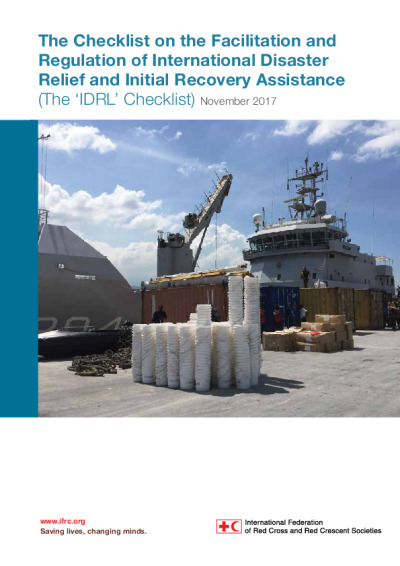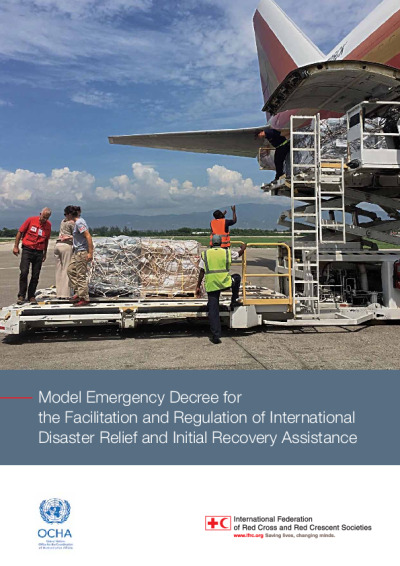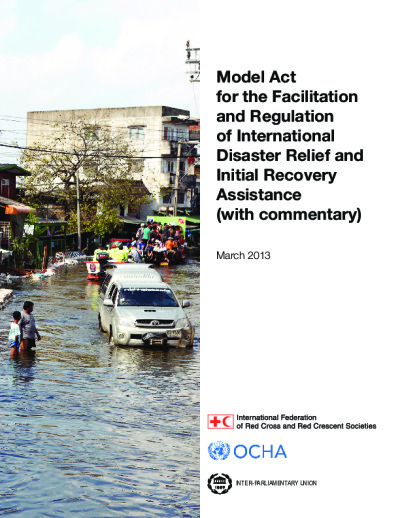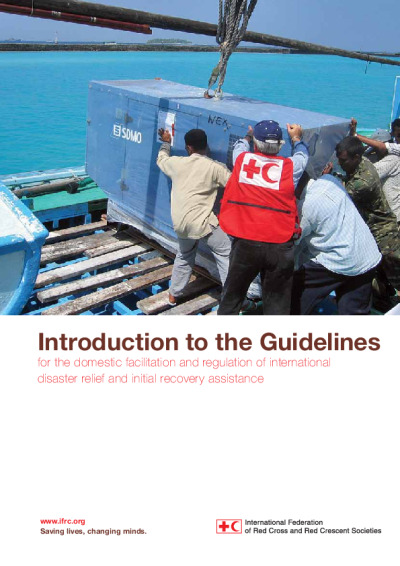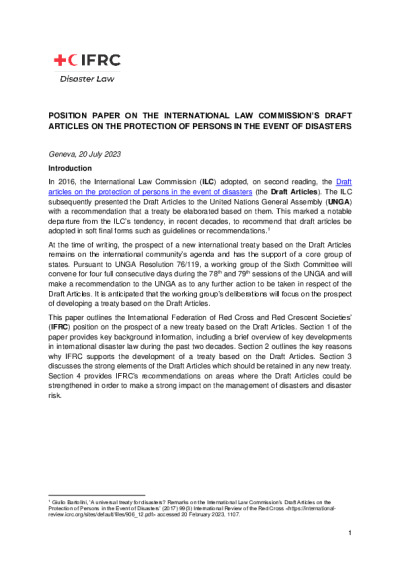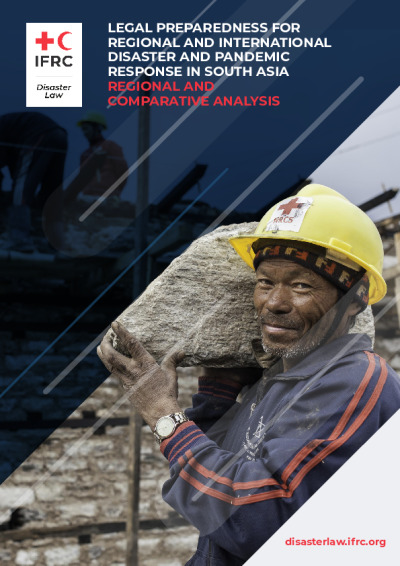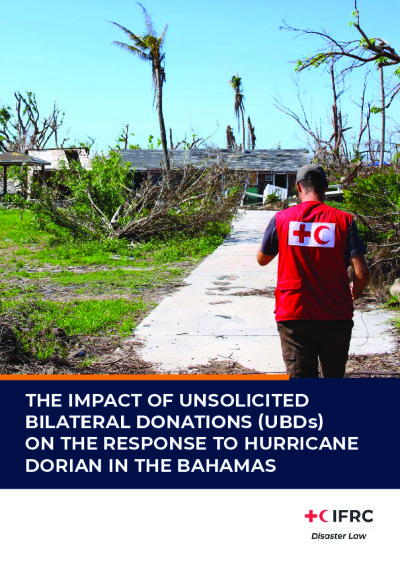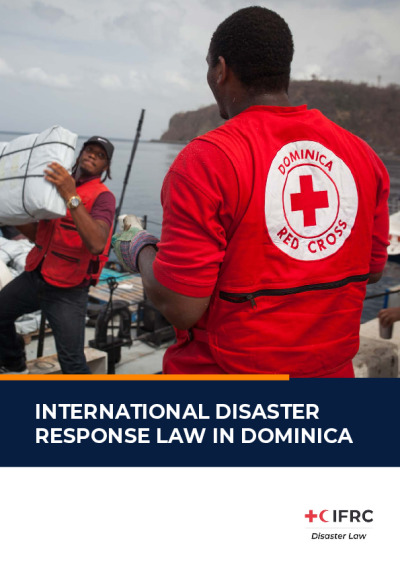Experience has shown that even the most well-prepared governments may need international assistance when a major disaster occurs. However, few governments are legally prepared to receive a sudden influx of international assistance. A lack of legal preparedness can delay lifesaving assistance, while also creating quality control and coordination problems.
International disaster response law (IDRL) is the area of international law that addresses the facilitation and regulation of international disaster assistance. IFRC Disaster Law is globally recognised as a leader in IDRL, having developed the Guidelines for the Domestic Facilitation and Regulation of International Disaster Relief and Initial Recovery Assistance (the IDRL Guidelines). The IDRL Guidelines are a set of recommendations to governments about how to prepare their disaster laws and plans to mitigate the common regulatory problems that arise in international disaster response operations.
The IDRL Guidelines were adopted by Resolution 4 of the 30th International Conference of the Red Cross and Red Crescent. Since then, they have been cited by 22 resolutions of the United Nations General Assembly, are referenced in the Sendai Framework for Disaster Risk Reduction 2015-2030 and have informed the substance of the ILC’s “Draft articles on the protection of persons in the event of disasters”. IFRC and Red Cross and Red Crescent National Societies have jointly influenced the development of several regional instruments consistent with the IDRL Guidelines. They have also supported the implementation of the IDRL Guidelines in domestic instruments in 38 countries.
In order to support the implementation of the IDRL Guidelines, IFRC Disaster Law has developed an IDRL Model Act, IDRL Model Emergency Decree, an IDRL Checklist and an introductory online training on IDRL.
